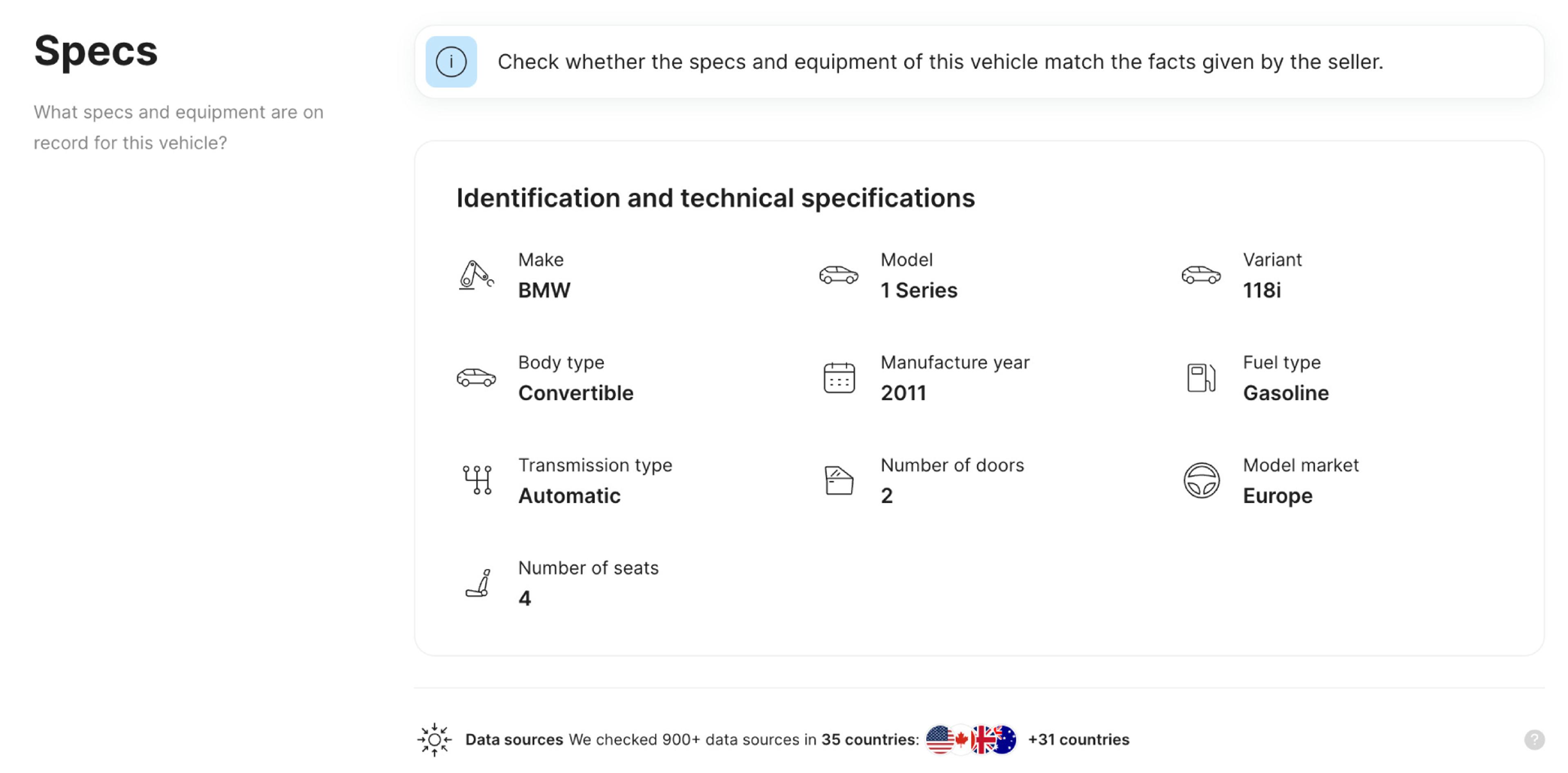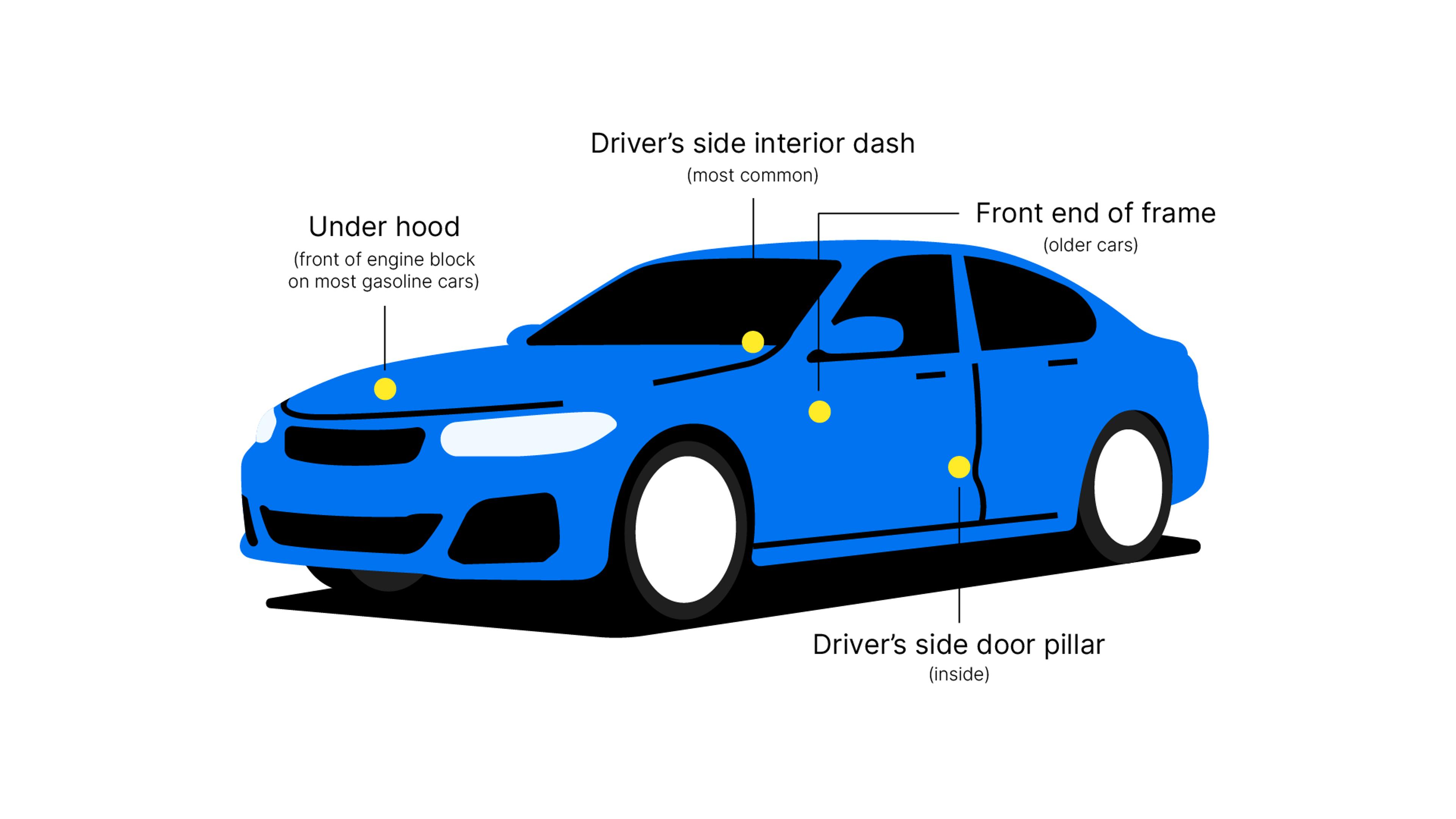09/28/2022
Can I look up my vehicle specs by VIN number?

When searching for the next vehicle, buyers tend to confuse themselves with many different model versions that may look the same but are, in reality, very different. How come?
The most common and basic details about vehicle specifications include the type of body, the type of fuel, the size of the engine, and the type of transmission. However, every vehicle identification number (VIN) contains detailed vehicle data, which reveals specific information. This includes what kind of equipment it has, what market it was manufactured for, or whether the car was stolen several years ago.
So how you can use VIN to learn more about a vehicle you're about to buy?

Afraid of buying a wreck?
Check any VIN to learn a vehicle's history!
How to identify vehicle specifications by VIN number?
VIN numbers have been assigned for virtually every vehicle worldwide over the past several decades. When these vehicle identification numbers became the universal global standard in the early 1980s, they helped buyers in at least several ways.
For example, a vehicle identification number helps reduce the risk of buying a motor vehicle with a falsified millage or a theft record. Furthermore, advancements in VIN decoding allowed buyers to access vehicle details at any time of day without needing to scroll through numerous databases. Instead, buyers can find the vehicle's identification number, input the 17-digit number into a VIN decoder tool, and push the decode button.

Where can I find the VIN number?
The easiest way to find the vehicle's VIN number is to look at the registration or insurance documents. However, the vehicle identification number also appears on the vehicles themselves.

If you have a motorcycle, the VIN should be located in the following places:
- On the right side of the frame
- On the front downtube
- The space between the cylinder and the top mount bolt
- Near the headstock (steering neck)
- On the bottom of the engine.
If you have a car – SUV, hatchback, or any other passenger vehicle – you'll likely find its VIN number here:
- On the driver's side of the dashboard (seen behind the windshield from outside)
- On the driver's door frame
- On the engine bay frame
- Behind the spare tire
- In the passenger footwell
Which vehicle specs can be identified?
Vehicles in manufacturing plant are produced based on specific buyer configurations or statistics that help manufacturers maximize their chances of selling the vehicle.
Due to the extremely high number of combinations of body color, rims, equipment, engines, and gearboxes, vehicle manufacturers link this information to the vehicle identification number, which, once decoded, gives you detailed information on the vehicle specs.
Here’s a list of vehicle spec categories that can typically be identified:
- Make, model, model year and country of origin
- Engine displacement and transmission type
- Standard and optional mechanical components
- Standard and optional equipment
- Exterior and interior colors
- Safety equipment
Which specs can't be identified by VIN and why?
Traditionally, vehicle identification numbers have been used to keep track of mileage rollbacks, accidents, and other events related to its ownership. However, even the most advanced VIN decoder cannot reveal certain types of data.
Vehicle manufacturers tend to safeguard OEM build data, also known as Monroney label stickers, which are mandatory for all new cars in the United States. These labels contain specific information about the vehicle, including the following:
- Manufacturer’s suggested retail price (MSRP)
- Warranties
- Fuel economy ratings
What other information does the VIN report provide?

Understanding the correct specifications of a vehicle helps one gain a better understanding of the vehicle in question. However, a history report will allow a more detailed evaluation of the vehicle and reduce the risk of purchasing one at a suspiciously low price.
A VIN lookup provides access to theft records from law enforcement agencies, registration and inspection dates, vehicle title information, mileage records, and information about specific model issues and vehicle damage.

Check your VIN
Avoid costly problems by checking a vehicle's history. Get a report instantly!
